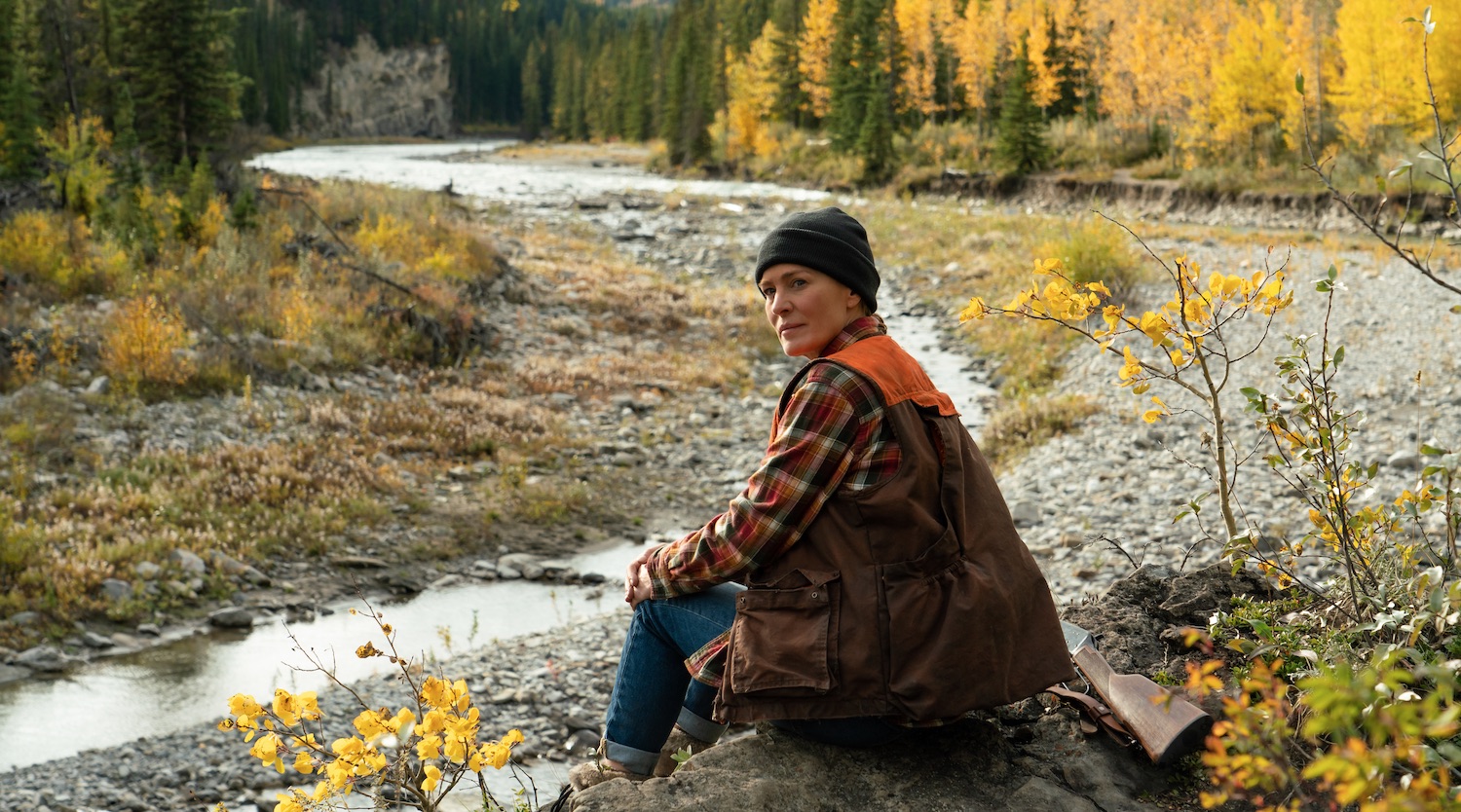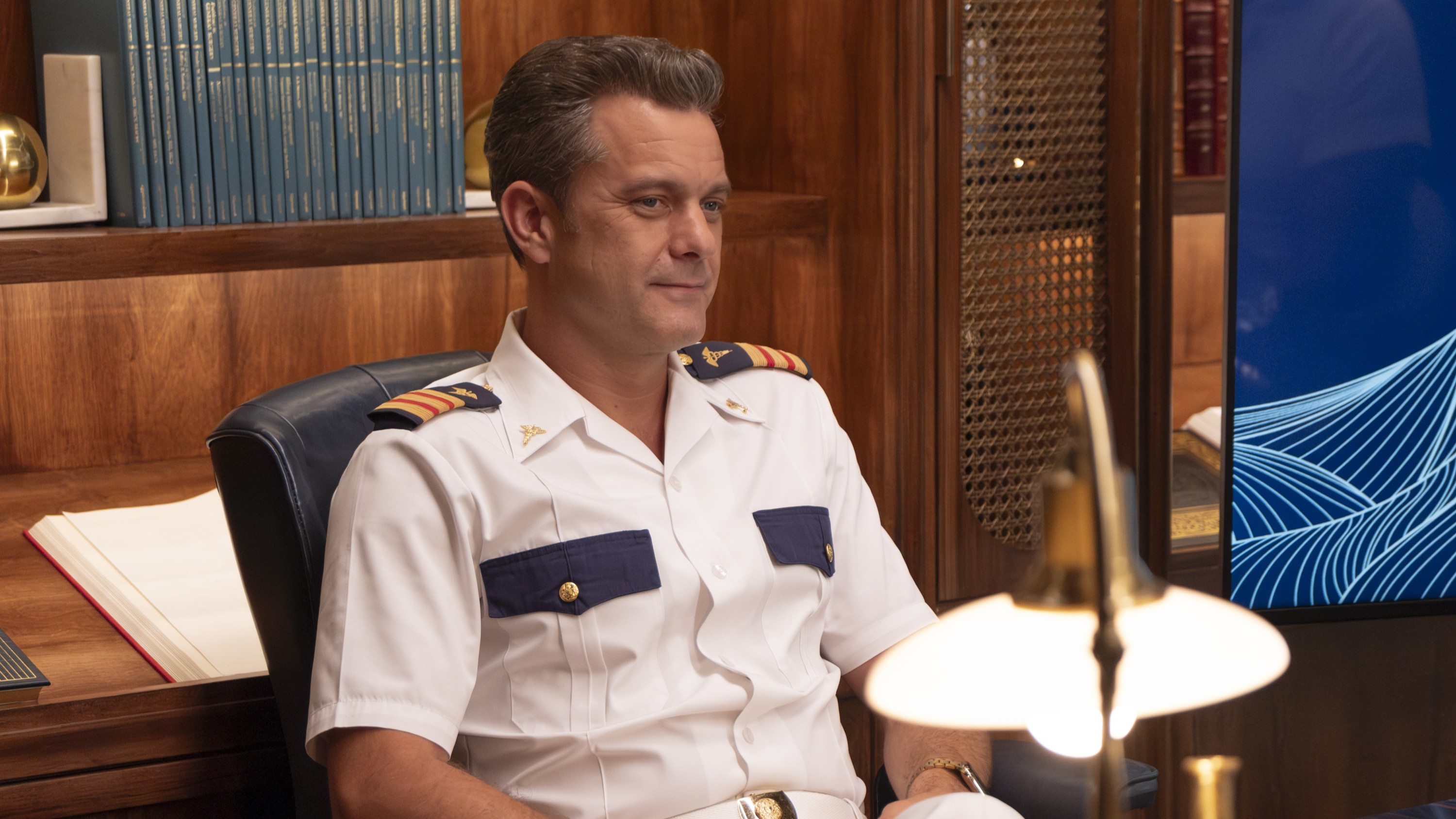What to Watch Verdict
In a subdued but powerful directorial debut, Robin Wright shows a light touch with a story about solitude that might lend itself to grander creative choices.
Pros
- +
🌲Wright's performance both on screen and behind the camera is full of beautiful, gentle touches.
- +
🌲Bichir proves an invaluable partner for Wright as an arm's length friend who teaches her how to survive in more way than one.
Cons
- -
🌲Following a season of films like 'Nomadland,' Wright's debut may be slightly too much of a downer for audiences.
If you were starting to think movies had given up on fun altogether, Robin Wright’s directorial debut Land focuses on the paralyzing, inescapable grip of grief — in a setting of life-threatening isolation, just for maximum (albeit unintentional) relatability to audiences who will be watching the film from the comfort of their living rooms instead of in theaters. Working from a script by Jesse Chatham and Erin Dignam, Wright not only directs but stars in this story of a bereaved lawyer who disappears to a cabin in the mountains to live off the grid. But if the film serves as a vivid reminder that no matter where you go, you can never get away from yourself, it’s a message that may prove less welcome after a year in worldwide quarantine, even if Wright and her co-star Demian Bichir draw a powerful but restrained portrait of two souls attempting to recover from unimaginable loss by subjecting themselves to circumstances that seem literally impossible to survive.
Wright plays Edee, a lawyer who decides to buy a remote, powerless cabin in the Canadian Rockies and move in indefinitely after the death of her husband and son. To the protest of neighborly locals who outfit her with some of the basic tools she’ll need to survive, Edee insists that someone take away her transportation, and outside of a shoe box stuffed with photos otherwise discards anything that reminds her of her former life. Perhaps unsurprisingly, however, she quickly learns how difficult it is to maintain the equivalent of a sustainable frontier life if you’ve never fished, hunted or farmed; while hiding in an outhouse, a bear invades her cabin, destroying her supplies, and merciless snowstorms prevent her from acquiring enough firewood to heat the only utensil in her kitchen, the stove. But before she can succumb to the elements — a fate she almost welcomes — a local hunter named Miguel (Bichir) notices that her cabin is dark and brings a medic to revive her.
Edee refuses to leave the cabin, so Miguel insists on caring for her until her strength returns, agreeing to the condition that he not bring any news of the outside world into her life. Additionally, he teaches her to hunt and forage for some of the local flora and fauna that will assist in her ongoing survival. They soon develop a quiet friendship, based in part on not knowing or asking too much about the other. But as Edee begins to cultivate the preparedness to survive on her own, she begins to develop new desires to connect with Miguel, even as those feelings remind her — painfully — of the agony she moved to the wilderness precisely in order to escape.
Chatham and Dignam’s script very plainly observes what could happen to a person if he or she is unprepared when deciding to make a life-changing decision to live off the grid, in service of the idea that it’s a profoundly sad, borderline stupid way to die. (Miguel poignantly argues that “only a person who has never experienced true hunger would let themselves die of starvation.”) But as ennobling and poetically tragic as it might be to die on the dirty, snow-covered floorboards of a cabin miles from nowhere in the Canadian mountains, Edee is forced to learn that her absence will not bring back her loved ones, and via flashbacks with her sister Emma (Kim Dickens) it’s clear that another death will only cause more pain. At the same time, the movie acknowledges that there’s no right way to grieve, and also, there’s no “solution” or repair that will take that pain permanently away. So as Edee develops an arm’s length friendship with Miguel, she isn’t learning to love or open back up in a way that feels unrealistic, merely discovering that it’s worth it to feel something — even if it were possible to stop doing so.
Wright throws herself fully into the role even as she directs with an appreciable level of restraint, never forcing metaphors out of the sometimes unforgiving landscape to drive home and emotional point. Bichir becomes indispensable after he arrives in the story, not merely as the gentle and welcoming presence that is precisely what she needs without requiring too much in return; although predictably, Miguel holds secrets of his own, they add dimensionality to their relationship and sort of relieve the necessity for a more conventional resolution involving romance or higher-pitched melodrama. Working together, you get a real sense of generosity and partnership as performers giving each other space to create meaning from their shared energy on screen instead of simply trading it via dialogue.
Suffice it to say that the movie can be bleak, but its chief virtue, ironically, is not in trying to rebound with implausible positivity. Many movies about loss end with a return to life, to hope and vitality; as a matter of false belief, sincere optimism or narrative convenience, that will and does not resonate with people who have lost a loved one. Consequently, Land can be a tough watch, but Wright achieves something special, and challenging, by allowing this woman to endure with her grief. Surviving is the best that we can hope for in tough times, and for someone dealing with more tragedy than most, a movie like this offers grace even (and especially) when it feels impossible to heal.
Land will be available on VOD March 5th.
Todd Gilchrist is a Los Angeles-based film critic and entertainment journalist with more than 20 years’ experience for dozens of print and online outlets, including Variety, The Hollywood Reporter, Entertainment Weekly and Fangoria. An obsessive soundtrack collector, sneaker aficionado and member of the Los Angeles Film Critics Association, Todd currently lives in Silverlake, California with his amazing wife Julie, two cats Beatrix and Biscuit, and several thousand books, vinyl records and Blu-rays.












